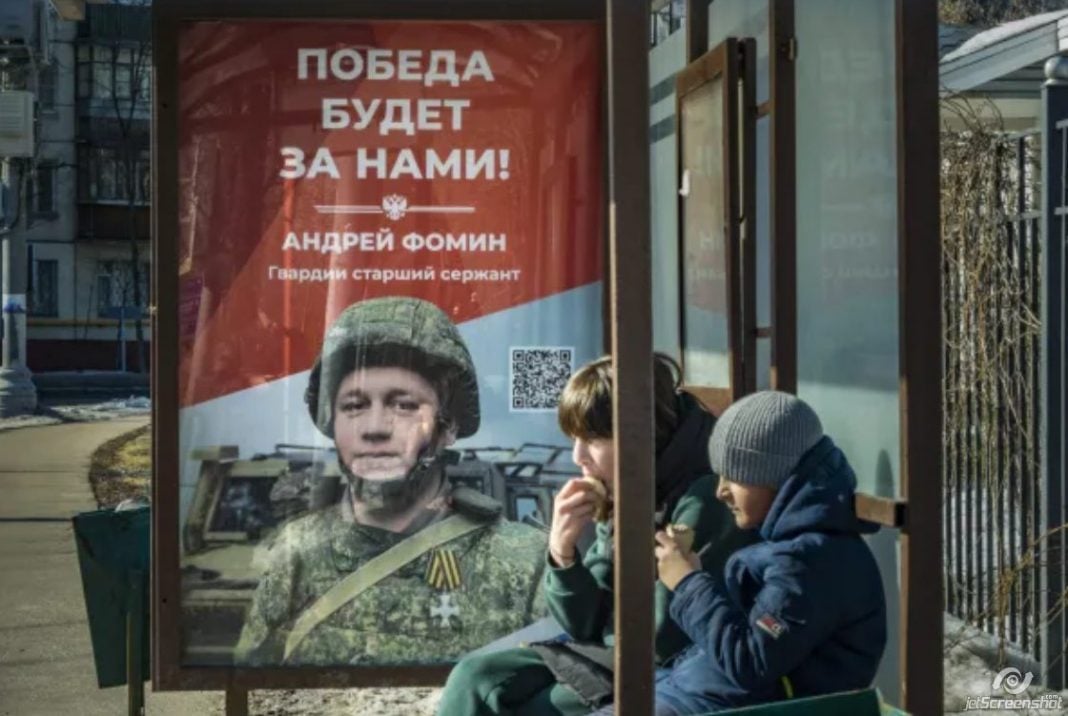By Kseniya Kirillova, for CEPA
The evolution from authoritarian state to dictatorship can happen in a moment, but more often it’s a lengthier and stuttering process. China’s transformation has taken years, and so too has Russia’s.
Vladimir Putin’s April 14 signature of a law on electronic draft notices marked a milestone where the distance between the country’s nasty starting point and the terminus was closer to the end than the beginning. The bill itself underwent a farcical process. Duma representatives only saw the final 56-page version two hours before the vote and were advised by the Duma chairman that any debate on the issue amounted to sabotage. One human rights activist compared the result to the return of serfdom and the complete destruction of the country’s legal framework.
According to the new law, draft notices will arrive in both paper and electronic form. A draft notice will be considered delivered from the moment it is placed in the personal account on the State Services website Gosuslugi. The state now deems that draft notices take effect from that moment, regardless of whether the conscript-to-be has access to the site or actually accesses it. Even if the draftee has removed his profile, the draft notice will be considered delivered seven days after publication in the unified draft registry, which is expected to be launched no later than October.
The old Russian excuse, that a letter failed to arrive, is no longer considered valid. From the moment of its electronic registry, the person liable for military service will be prohibited from leaving the country. If he fails to appear at the military registration and enlistment office within 20 days of its issuance, various elements of daily life will become impossible. He will not be able to register a sole proprietorship or self-employment, conclude real estate and car transactions, drive vehicles, or take out loans.
The extraordinary reach of the law has been criticized even by analysts close to the Ministry of Defense on the Military Review website. They noted that it embodies a presumption of guilt. And that given Russia’s corruption, and the established incompetence of military enlistment and registration offices, citizens will find ways to effectively boycott the system — just as they did with vaccination efforts during the pandemic. Will the state have the courage to call up the young men of Moscow and St Petersburg, the well-educated who complained to such effect last year that most were spared the draft? Regardless, the writer predicts, many will prefer life as an outlaw to a frontline trench in Ukraine.
As the state’s efforts to refine its draft system continue, so does its work to sharpen war messaging. Earlier postulates about how the war in Ukraine was unavoidable in order to prevent an attack on Russia, seem already to have lost their effectiveness. Now, Russians are told that the USA and NATO have already attacked Russia and that the war is entirely exclusively defensive.
Over the past few months, Russian propaganda has offered bizarre explanations of what exactly this attack was. Most frequently, this moment was not defined. But the reasoning is given by Kremlin experts as the inability of the United States to “accept the loss of its position as hegemon.”
These efforts to explain are not just offered by the often-comical contortions of television chat show propagandists. The regime’s heavy artillery, the analysts at the Valdai Discussion Club, are also hotly engaged. According to one of its leading economic analysts, 2022 marked the year that, “the ‘tops’ [elite] of the United States and Britain chose the path of conflict and the imposition of a new colonialism. Russia and China seemed to be their main goals — it was decided to return the countries to a state of periphery so that the West could use their resources to overcome its economic difficulties.”
If earlier propaganda claimed that the United States wanted to preserve the former world order based on its hegemony, now a diametrically opposed thesis is being promoted. Kremlin analysts say that the Americans are trying to build a new “world, based on US rules.”
What do ordinary Russians make of all this? Pro-Kremlin analysts have noted no notable popular reaction to the electronic draft notice law. It is true that many Russians do not react to laws, but to their application, and that they recognize the futility of confrontation with the government. Kremlin experts also hope that many will maintain the Russian tradition of fulfilling your duty.
This does not mean, however, that all Russians are ready to go meekly to the slaughter. Sociologists have long noted that Russian society is extremely atomized, and under conditions of repression, this atomization naturally increases. This means that Russians develop individualized strategies. For example, human rights activists who help people avoid the draft report they have received a lot of questions on how to stay out of the military.
That may prove much harder this time as the Kremlin bears down on regions instructed to deliver a given number of men. And failure to fulfill the plan is increasingly stigmatized as “harmful and sabotage.” The irresistible force of centralized pressure is heading for the immovable object of ordinary people’s resistance. The outcome is far from clear.
By Kseniya Kirillova, for CEPA
Kseniya Kirillova is an analyst focused on Russian society, mentality, propaganda, and foreign policy. The author of numerous articles for the Jamestown Foundation, she has also written for the Atlantic Council, Stratfor, and others.
Europe’s Edge is CEPA’s online journal covering critical topics on the foreign policy docket across Europe and North America. All opinions are those of the author and do not necessarily represent the position or views of the institutions they represent or the Center for European Policy Analysis.





